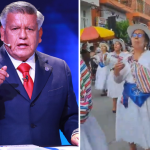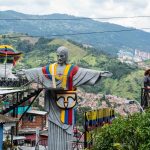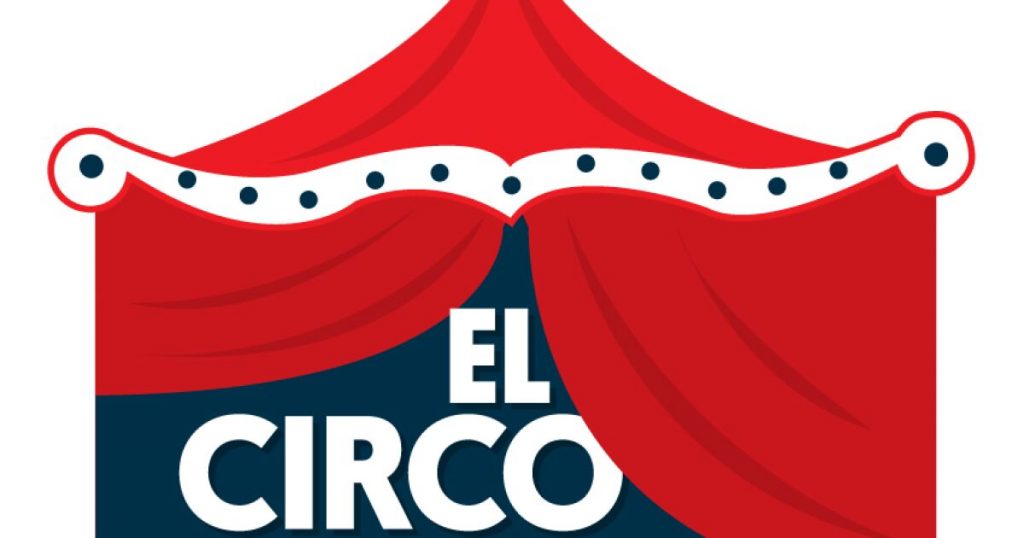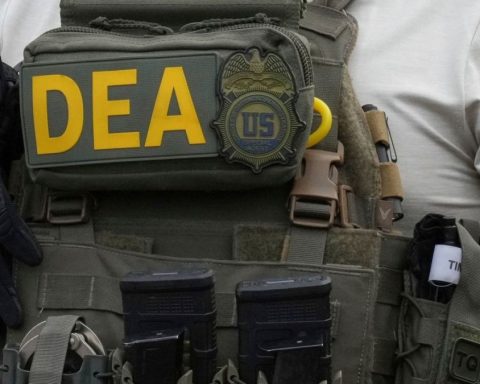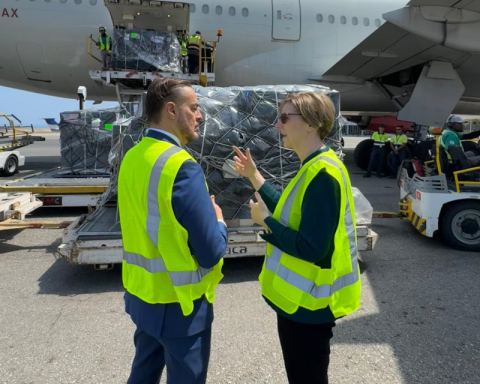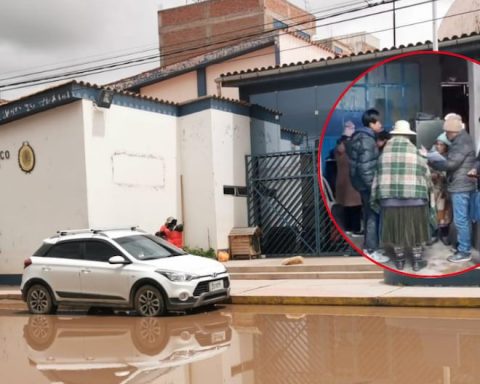The reactivation of political trials against prisoners of conscience imprisoned in “the new Chipote”, ordered by the Daniel Ortega regime, is another act in an extensive list of annulments and violations that, for the Nicaraguan lawyer specializing in Criminal Law , María Asunción Moreno, leads to the same legal conclusion: the closure of the cases and the immediate release of the political prisoners.
The jurist maintains that “there is no basis, neither legal nor in fact” to resume the political trials, which she describes as “spurious and illegal”, nor to keep prisoners of conscience imprisoned. On the contrary, she affirms that “there are so many nullities in all these processes that the only thing that fits is their immediate release.”
The Ortega regime began, this January 24, to reactivate the frozen trials against political prisoners, imprisoned between May and November 2021setting trials against Ana Margarita Vijil, Dora María Téllez, Yader Parajón, Yaser Vado, Miguel Mendoza and José Antonio Peraza for February 1, 2, 3, 8 and 9, at the facilities of the Evaristo Vásquez Police Complex, known as “the new Chipote”, where they have remained imprisoned under constant interrogation and physical and psychological torture, with only five family visits in up to seven months in prison.
In a legal analysis, carried out during an interview with journalist Cindy Regidor, on the program Tonight – which is only broadcast on YouTube and Facebook Live due to the television and radio censorship imposed by Ortega – Moreno explained that “all the cases (against political prisoners) are riddled with nullities and illegalities that violate, not only the Nicaraguan Political Constitution and international treaties on human rights, but also the internal regulations themselves, such as the Code of Criminal Procedure and the Criminal Code”, rejecting compliance with the legal system, as argued by the regime and the Prosecutor’s Office, reduced to a crime factory at the service of the ruling Sandinista Front.
There is delay of justice
According to Moreno, the freezing of the political trials, ordered in October 2021 citing “force majeure or saturated agenda”, followed “the same common thread of violations of guarantees and rights of the accused, because the (cause of) force majeure is due to base”.
“They really are capricious suspension resolutions, outside the law, without any type of legal foundation,” he denounces.
According to the jurist, by violating all their guarantees and rights, keeping them illegally detained, political prisoners are also “victims of delayed justice.”
“As the processes are null, the people deprived of their liberty under all these procedural illegalities should really be free. One, because they are innocent, we must not forget that; two, because procedurally speaking, since the six months have already passed, which the process could last at most, and the three months that the Penal Code speaks of for the duration of a normal process have already passed, the judge should have dismissed the case, decree an extinction of the criminal action” summarizes.
It also warns that the Nicaraguan Penal Code provides for responsibilities for the delay of justice, false accusations and fabrication of evidence. “If we were to take the Penal Code and start denouncing the operators of the justice system, there is enough evidence –unlike our political prisoners, for whom there is no evidence against them– to prosecute these judges, these prosecutors, and even public defenders who are lending themselves to simulating a defense and violating guarantees as important as those of due process.”
Trials in “the new Chipote” are illegal
Moreno also indicates that the illegalities continue by establishing the trials in the facilities of “the new Chipote”, where they have remained imprisoned, most of them for more than half a year.
“The holding of hearings outside the Courts is illegal. The Code of Criminal Procedure is very clear in article 121, in establishing that there is a place for a judge to act, and the judge can only move to another place to carry out some errands”, among which he cites if a witness is in the hospital or cannot travel to Court, and the judge must travel to receive your testimony, or if the judge must go to a crime scene.
However, it questions that “one issue is to carry out a judicial proceeding and the other is the oral and public trial hearing, or the hearings, in this preliminary or initial case, or the protection of guarantees,” and reiterated that “any hearing held outside the Courts is illegal”.
“Complex processing” is capricious
Likewise, Moreno considers that, behind the order to reactivate the political trials, there is the “clear intention” to prolong his detention and questions the argument of qualifying the alleged crimes as “complex processing”, because he values that it is a resource to prolong the Judicial process.
“Complex processing is for serious, very serious crimes, such as organized crime and money laundering,” explains Moreno.
Among the 39 political prisoners captured between May 28 and October 21 (including four under house arrest), 29 are accused of alleged conspiracy to undermine the State of Nicaragua; another seven are accused of money laundering and other crimes; two are investigated for violations of the “Law of Sovereignty” and one for abusive management and improper approval and retention.
However, Moreno claims that the regime and its apparatus violate the presumption of innocence and the right to defense of political prisoners, also established in the Nicaraguan legal system, and that the accusations have “serious inconsistencies,” “not only in the narration of the facts, but also in the determination and imputation of responsibilities”.
“They accuse people of conspiracy, which is a form of criminal participation, without determining what the acts of conspiracy are or who the authors are,” argues the jurist, who has no doubt that the political trials are another proof of how the regime has demolished the rule of law and institutionality in Nicaragua.
“For them to say that a person is a conspirator in an act, of treason against the country, for example, there must be – if there is a conspirator – an author”, otherwise it is a “technical inconsistency, which violates the principle of legality “, Explain. Nor, he claims, do they clearly describe the facts, and even “make accusations without any basis” or evidence or conviction.
Political prisoners “detained without legal cause”
The Ortega regime keeps approximately 170 Nicaraguans imprisoned for political reasons, including more than 60 imprisoned between May and November 2021, to clear the way for Ortega to his fourth consecutive presidential term, through illegitimate voting without competition, qualified as an “electoral farce”.
The political prisoners “were illegally detained and continue to be illegally detained to this day, from a legal point of view,” Moreno affirms, reiterating that they were detained without a court order or legal cause, even remaining in the condition of disappeared, when the regime He refused for several weeks, and even months, to confirm their whereabouts, allow them family visits, meetings with their lawyers, or the receipt of food, water, medicine or personal hygiene items.
“The only thing that was publicly known were the official versions of the organs of the Nicaraguan justice system”, through the communiqués of the Police or the Prosecutor’s Office, about their alleged proceedings of special hearings to decree “the famous three months for investigation” , remember.
“They have been illegally detained, they have been subjected to a process illegally… there is no control in the automated system, because they have not wanted to put the cases in the system that the Courts have, where all the lawyers can see how it is progressing or processing a case; these are cases that do not exist in this system,” he adds.
According to Moreno, the political prisoners “should have been released after three months, or they should have been sentenced, and quite the opposite has not happened… they have been invented and illegally imposed the famous complex processing”, and also later suspended the processes.
“What we are seeing is intentional, targeted and illegal prolonged preventive detention,” he claims, and values that “pretrial detention has become a prolonged illegal sentence for political prisoners.”
The express and secret hearings were another illegality
After months in prison, anguish and uncertainty, the regime confirmed that it had begun preliminary hearings for political prisoners, in “the new Chipote.” “What these bodies, which are at the service of the regime, reported to us was really a series of illegalities,” Moreno claims.
“Express hearings, night hearings, and home hearings were held,” cites the Criminal Law expert.
Moreno maintains that holding these hidden hearings, at night and even on weekends, “is another type of illegality” that violates the Code of Criminal Procedure and the Political Constitution, which establish that the hearings must be public.
Other annulment: no right to defense
The jurist also points out that another reason for annulment is that the political prisoners have not had the right to a defense, because they have not been able to meet with their lawyers, much less in private interviews as established by law.
“That is one more reason why these processes are null,” Moreno affirms, after insisting that “all the guarantees of due process” established in the Code of Criminal Procedure have been violated, and number one of article 163, which indicates that “a process is null when all the guarantees of due process and constitutional guarantees are violated.”
“They are receiving the notifications without having access to their defenders, until the time of the hearing. That violates the right to a defense in the material sense, because the defense is not only that I have a lawyer appointed in the trial, but also that that lawyer can meet with me to be able to design a defense, and really that the material defense, to which every defendant has the right, can be carried out at a hearing”, he criticizes.
Political prisoners are victims, not criminals
A CID Gallup poll, conducted in December 2021 and sponsored by CONFIDENTIALrevealed that 67% of Nicaraguans demand the annulment of political trials, and 73% consider that they should be released.
For Moreno, “it is clear that, of the 170 political prisoners, none has committed a crime, from the legal and judicial point of view.”
“These are citizens who have not committed a crime, who are being prosecuted and criminalized within a process full of illegalities, with total disrespect for their individual rights and their guarantees of due process, which our legal system establishes,” he warns.
Likewise, it agrees that “there is a clear perception that people are being prosecuted and criminalized for wanting a better Nicaragua, for thinking differently from the regime” and that this citizen perception that the political prisoner is an innocent person, who has not committed a crime, is what justifies their being in favor of his immediate release.
It maintains that political prisoners “are victims of serious human rights violations, in the international sphere”, sustained in international treaties such as the Universal Declaration of Human Rights and the convention of the inter-American system.
“If it is a legal analysis, these processes are null, and therefore, what fits is the release of political prisoners immediately, and not to be holding illegal hearings, in that chain of illegalities that we have seen,” reiterate. “All legal paths – sentence – lead you to the fact that political prisoners should not be detained, they should be enjoying their freedom”.







